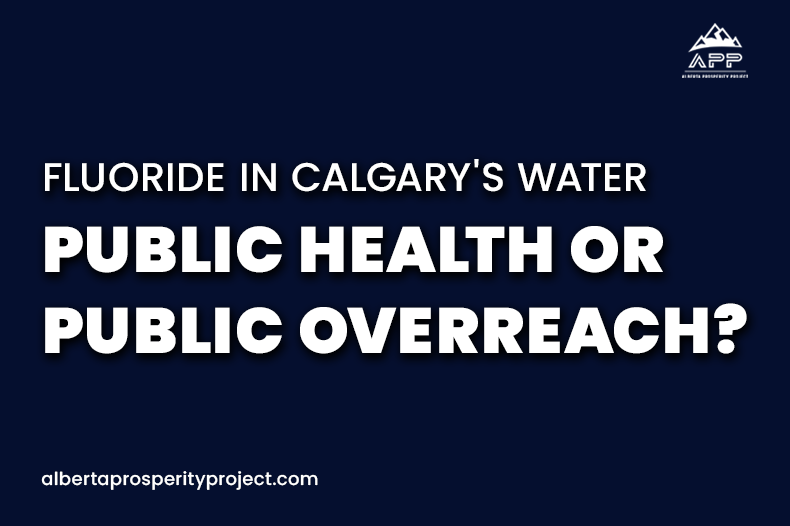Editorial pulled from the conversations on “The Chris & Kerry Show”
After more than a decade without fluoridated water, the City of Calgary is preparing to reintroduce fluoride to its municipal water supply. The $28 million infrastructure investment and an additional $1 million in annual operating costs have reignited fierce debate over public health, informed consent, and governmental accountability.
In 2011, Calgary City Council voted to discontinue fluoridation after equipment degradation and concerns over efficacy and safety. A public plebiscite held during the 2021 municipal election saw 62% of participating voters support reintroducing fluoride. However, that figure equates to only 11.3% of the city’s population, leading critics to question whether meaningful consent was obtained.
Activists Art Matsui and Adele Senoy, long-time civic participants and founders of Safe Water Calgary, argue that reintroducing fluoride amounts to mass medication without informed consent. They cite Health Canada’s endorsement of fluoridation as insufficient justification for exposing an entire population to a substance that many experts link to potential health risks, including fluorosis, lowered IQ in children, and increased fragility of bones.
Contrary to popular belief, fluoride is not simply a benign mineral. Fluoride compounds used in municipal water systems, often sourced as industrial byproducts from phosphate fertilizer production—frequently from China—contain trace levels of heavy metals such as arsenic and lead. Once added to the water supply, fluoride cannot be regulated by individual dose, raising concerns about children, pregnant women, and vulnerable populations receiving disproportionately high exposure.
Medical professionals remain divided. While dental associations often tout fluoride as a cavity-preventing agent, even some dental practitioners acknowledge it is most effective topically, not systemically through ingestion. Toothpastes and fluoride rinses exist for targeted application without necessitating full-population exposure.
Adding to the controversy, whistleblowers—including former water treatment staff—have attested to the hazardous handling protocols required for fluoride additives. Workers must wear hazmat suits due to the chemical’s volatility. One former operator from Saskatchewan developed osteofluorosis, a rare but serious condition caused by fluoride accumulation in bones.
WATCH HERE: https://rumble.com/v6r26s2-fluoride-in-calgary.html
Proponents of fluoridation argue that the measure is cost-effective and based on decades of public health research. Yet critics argue that much of the pro-fluoride literature is outdated or selectively cited. For example, a key study used to justify reinstatement in Calgary was criticized for comparing dental health outcomes across inconsistent timelines and jurisdictions.
Further complicating the matter, Calgary’s water services extend beyond its municipal borders to surrounding communities like Airdrie, Chestermere, and parts of Foothills County—residents who had no vote in the 2021 plebiscite but will nevertheless be subjected to fluoridated water.
At the heart of the debate lies a fundamental question: Should public utilities be used to administer substances with medical implications, especially when alternatives exist that preserve individual choice? Advocates like Matsui and Senoy are not merely contesting fluoride’s efficacy—they are challenging a broader precedent about bodily autonomy and government overreach.
The Alberta government, particularly Minister of Environment Rebecca Schulz, holds the authority to halt fluoridation by revoking Calgary’s permit. Activists are urging citizens to contact provincial representatives, sign the Safe Water Calgary petition, and demand a moratorium on the policy until more comprehensive, unbiased public education and review are conducted.
In an age where public trust in institutions is waning, fluoridation is no longer just a dental issue—it is a test case for public consent, transparency, and the balance between public health and individual rights.For more information or to take action, visit: www.safewatercalgary.com

WHAT CAN ALBERTANS DO?
Donate to help us secure Alberta’s sovereignty!
We appreciate all of the support you can give us as we work together for a Free, Prosperous and Sovereign Alberta and for all who call Alberta home!


